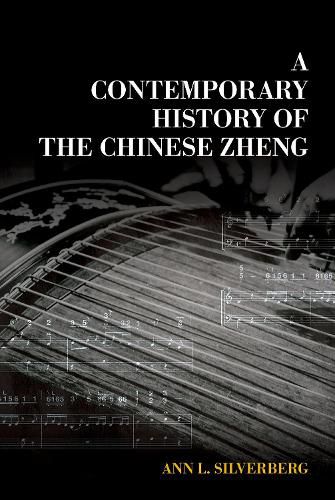Readings Newsletter
Become a Readings Member to make your shopping experience even easier.
Sign in or sign up for free!
You’re not far away from qualifying for FREE standard shipping within Australia
You’ve qualified for FREE standard shipping within Australia
The cart is loading…






A Contemporary History of the Chinese Zheng traces the twentieth- and twenty-first-century development of an important Chinese musical instrument in greater China.The zheng was transformed over the course of the twentieth century, becoming a solo instrument with virtuosic capacity. In the past, the zheng had appeared in small instrumental ensembles and supplied improvised accompaniments to song. Zheng music became a means of nation-building and was eventually promoted as a marker of Chinese identity in Hong Kong. Ann L. Silverberg uses evidence from the greater China area to show how the narrative history of the zheng created on the mainland did not represent zheng music as it had been in the past. Silverberg ultimately argues that the zheng's older repertory was poorly represented by efforts to collect and promote zheng music in the twentieth century. This book contends that the restored "traditional Chinese music" created and promulgated from the 1920s forward-and solo zheng music in particular--is a hybrid of "Chinese essence, Western means" that essentially obscures rather than reveals tradition.
$9.00 standard shipping within Australia
FREE standard shipping within Australia for orders over $100.00
Express & International shipping calculated at checkout
A Contemporary History of the Chinese Zheng traces the twentieth- and twenty-first-century development of an important Chinese musical instrument in greater China.The zheng was transformed over the course of the twentieth century, becoming a solo instrument with virtuosic capacity. In the past, the zheng had appeared in small instrumental ensembles and supplied improvised accompaniments to song. Zheng music became a means of nation-building and was eventually promoted as a marker of Chinese identity in Hong Kong. Ann L. Silverberg uses evidence from the greater China area to show how the narrative history of the zheng created on the mainland did not represent zheng music as it had been in the past. Silverberg ultimately argues that the zheng's older repertory was poorly represented by efforts to collect and promote zheng music in the twentieth century. This book contends that the restored "traditional Chinese music" created and promulgated from the 1920s forward-and solo zheng music in particular--is a hybrid of "Chinese essence, Western means" that essentially obscures rather than reveals tradition.